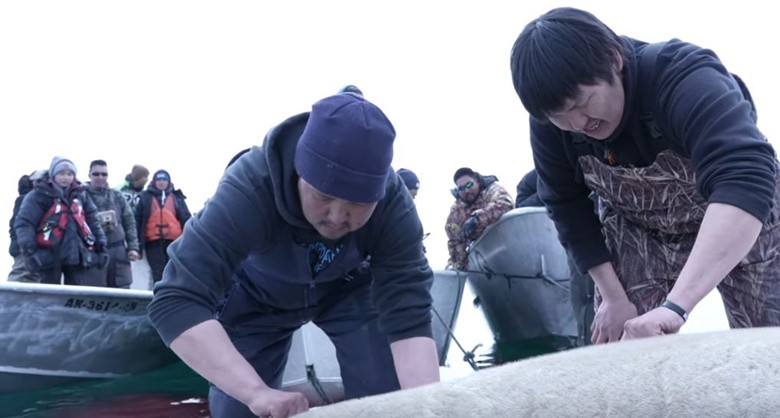- Cama-i, quyana tailuci!
- (Central Yup’ik)
- "Greetings, thank you for coming!"
Lower Yukon School District walrus hunt strengthens community bonds and teaches life skills

Starting a new school year is typically marked by gathering school supplies and learning the classroom routines and procedures of new teachers, but for the students in the Lower Yukon School District the first weeks of school looked very different. The district started the year with a unit on Yupik culture and spent the first two weeks learning and participating in subsistence activities.
The activities are part of the district’s efforts to incorporate more intensive cultural opportunities for students. Offering more cultural learning was identified as one of the top three community priorities when the district developed its strategic plan four years ago. Now, other cultural elements the district is incorporating include welcoming Eskimo dancing in schools, involving elders to help with discipline, and building Yupik language vocabulary with both students and staff.
“The cool thing about this is not only are the students regaining their language, the teachers are also learning as well,” Assingaq Janet Johnson, Yupik Language and Culture Director for LYSD said. “We’re seeing more and more teachers addressing students using the language that they’re learning, which brings a really good feeling not only to the students, but to the school climate as well as parents and the community.”
The cultural programming has also included learning traditional hunting skills. Last May, LYSD Media Specialist Paul Galvez documented a students’ first subsistence seal walrus hunt and produced a short film which was published in October.
“From an outsider’s standpoint, it was really cool seeing the hunters pass down their knowledge to the kids,” Galvez said.
The video features a dialogue between the young hunter and an elder. The elder speaks to the child in Yupik, and the child responds in English.
“At least in Hooper Bay, not a lot of the kids speak Yupik. They kind of understand because their parents talk to them. I wanted to show that the elders are still trying to keep the language alive,” Galvez said. “I think the elder hopes that he not only learns the ways, but that he learns the language.”
“In order to navigate this world today, we need both languages,” Johnson added.
Johnson says that activities such as the walrus hunt and other programming within the schools has resulted in more people becoming involved and supporting the schools.
“In allowing our schools to bring in culture and the way of life of the Yupik people into the school system’s values and honoring the language, we’re beginning to see more and more support from outside entities and businesses,” Johnson said. “It’s a really good feeling not only for the students, the parents, and the communities, but also the school itself. There is support coming in from all levels.”
